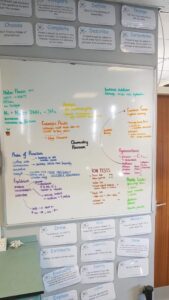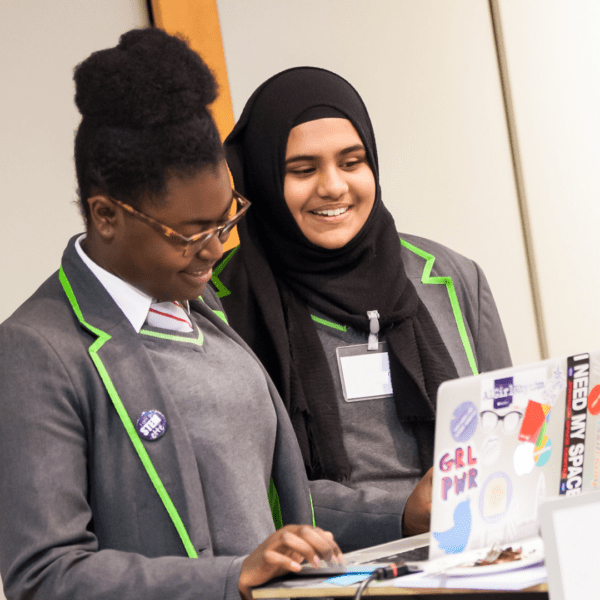
This may sound basic but focus on the bigger picture and the basic concepts first, rather than trying to squeeze loads of details you don’t understand into your brain. Understanding the principles of how something works or how to do something not only means you can go into an exam feeling more confident overall, but it also gives you a great springboard for understanding those more gritty parts – because you know how it works! Start with the big picture and work to the smaller details.
– Ella, University
- Have your notes done well in advance so you don’t need to waste time writing out notes when you’re meant to be revising (if I have gaps in my notes I go back and fill in what I need to rather than rewriting all my notes again, it just wastes time)
- If you know you’re easily distracted by your phone or something else, put it in another room so you won’t be bothered to get up and get it. Or just give it to your parents so they can keep it away from you for a few hours
- Revision guides are only helpful for writing notes in my opinion
- Do practice papers to get the gist of the types of questions which can be asked, as a lot of the time the questions you practice will be quite similar to what comes up in the exam
- Only do practice questions if you’re CERTAIN you know the content inside out, otherwise doing practice papers will be useless
– Malaika, School
My favourite last-minute revision thing is using a whiteboard. One of the physics teachers at my school gives us free rein over the classroom dry erase board during exam weeks. It’s especially useful when you have a small group and everyone can compile their ideas the lunchtime or form time before an exam. For example quotes for English, if everyone writes down a different quote around the board, you can take a photo of it the lunchtime before the exam and study any quotes you maybe forgot to think about. Or, physics equations…

Also listening to music without words like instrumentals/soundtracks as I have mentioned before.
– Katy-Rose, School
Pomodoro technique. 25-minutes of revising, 5-minute break when you get to move around.
– Nabiha, School






